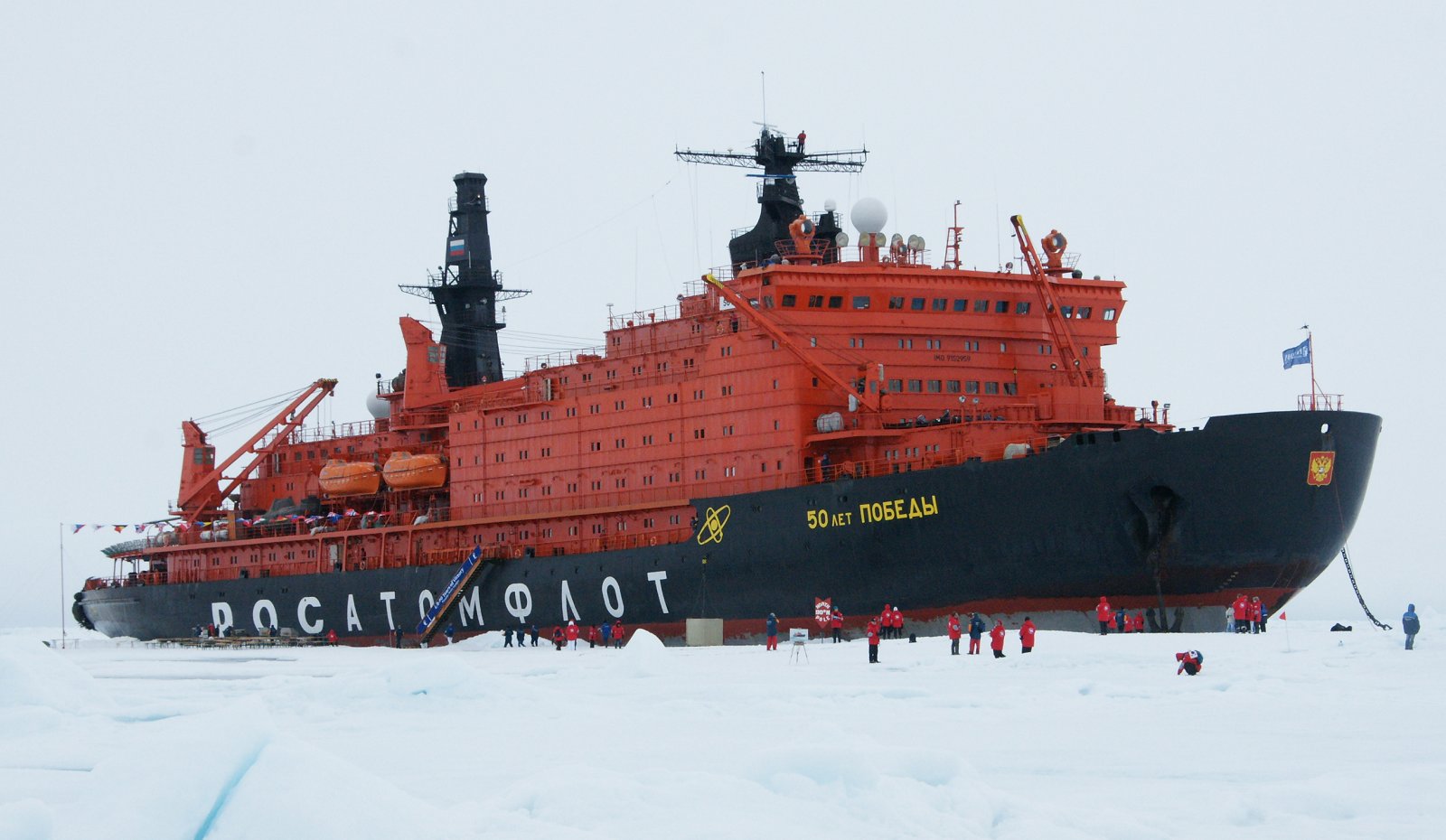A Russian icebreaker just reached the North Pole in record time

The Russian nuclear-powered icebreaker 50 Let Pobedy arrived at the North Pole Thursday, news agency TASS reports, reaching it 79 hours after leaving Murmansk. Only a few years ago, few would believe it would be possible to sail even a powerful nuclear icebreaker through the Arctic sea ice at such a speed.
50 Let Pobedy, or “50 Years of Victory” left Atomflot base in Murmansk on Aug. 13 on a voyage celebrating the 40th anniversary of an earlier such voyage, on which the Soviet Union became the first nation to reach the North Pole with a surface vessel. The nuclear-powered icebreaker Arktika reached 90 degrees north on August 17, 1977.
The voyage with Arktika took 176 hours, more than twice the time it now took 50 Let Pobedy to sail the same route.
Measurements by different science expeditions over the last few years have shown a thinning of Arctic sea ice, and partly full disappearance of multi-year ice. That makes it easier for an icebreaker to crush the ice and keep up the speed.
Satellite analyses from the National Snow and Ice Data Center show an average sea ice extent for July this year to be the fifth lowest in satellite record.
When 50 Let Pobedy clocked in at the North Pole today, it also marked the 124th time a surface vessel has reached the top of the world. An unknown number of submarines have also crushed through the ice and surfaced at the North Pole.
“This voyage has a dual objective,” says Vyacheslav Ruksha, head of Rosatomflot, the company operating the fleet of nuclear icebreakers.
“We honor the legendary expedition of icebreaker Arktika and give gratitude to our veterans, and at the same time we demonstrate that today’s Russia, after 40 years of successful work in the western part of the Arctic, is ready to take on global tasks such as providing year-round navigation on the Northern Sea Route.”